Redress. (short story)
Published in October 十月. Vol.4. 2023
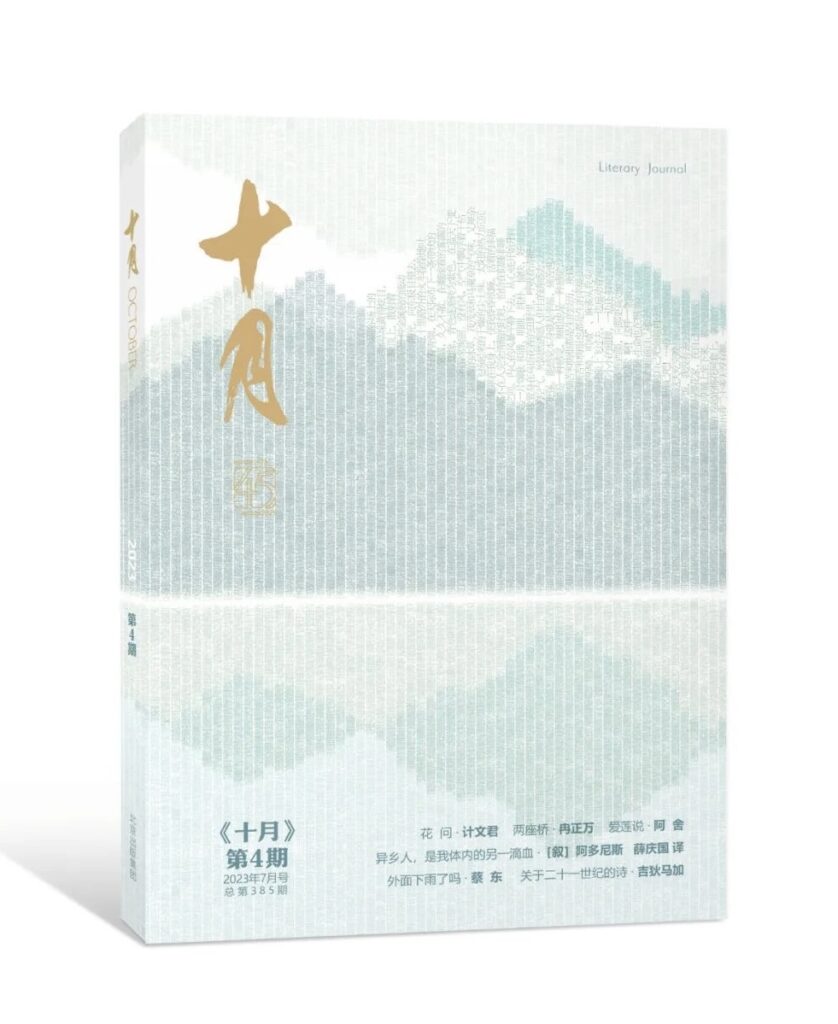
During China’s first lockdown in 2020, I stumbled across a few Chinese fashion magazines in the mid-80s to early 90s. I was shocked at the models’ very “classical” but unfamiliar poses and the fashions that were full of “Chinese elements” but largely westernised. It was, I assumed, an embodiment of reform and opening up. I wondered how these girls became the first Chinese fashion models after the Mao era and how people understood and pursued beauty at the time when my parents were still teenagers.
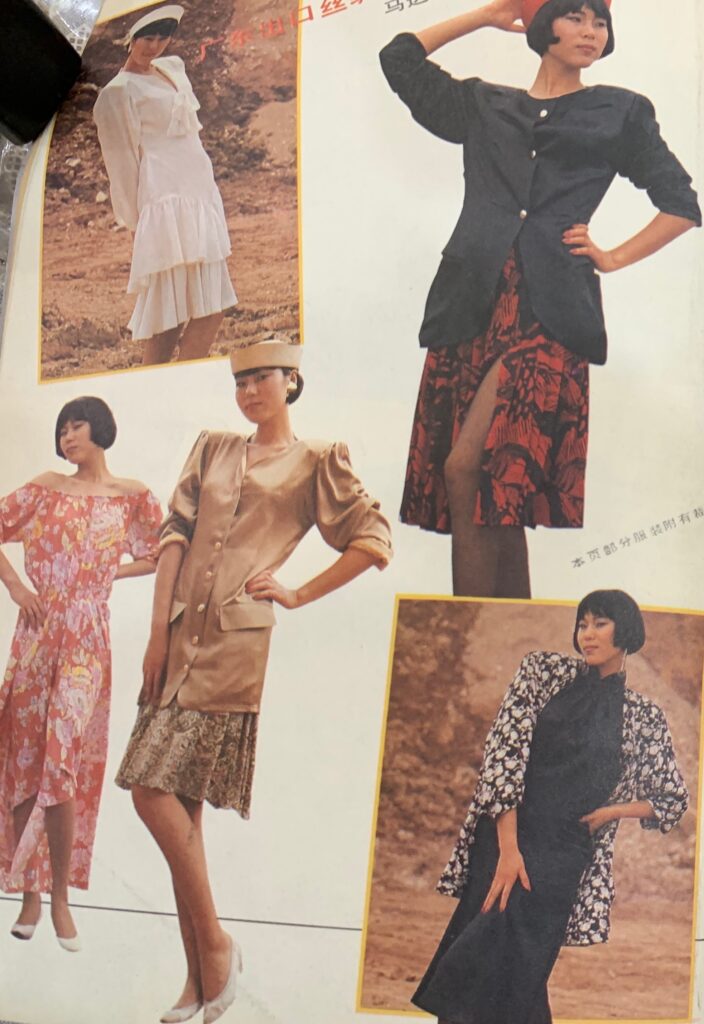
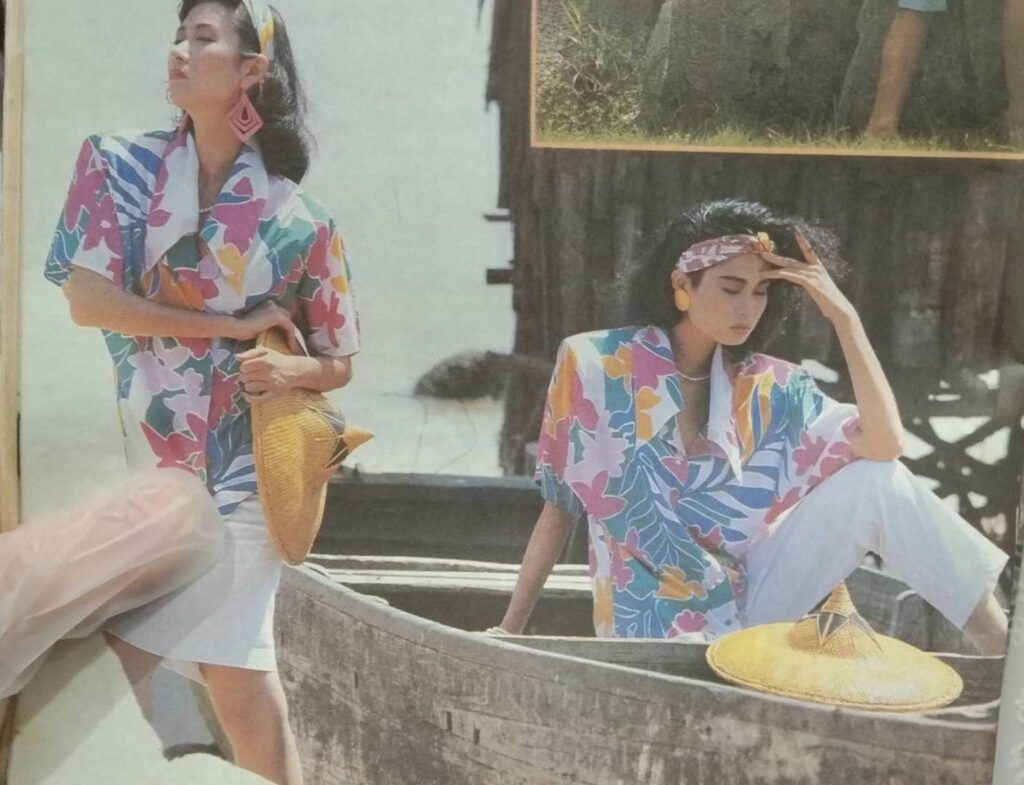
So I bought those old magazines and read every page carefully. There was everything, including makeup tutorials, Japanese plastic surgery advertisements, introductions to new fabrics, fashion trends of the year, sewing tutorials, voting for the most beautiful clothes, and translated interviews with western models. What interested me most was the slow but stunning shift in people’s understanding of their right to be prettier. Some of the articles said, “there was nothing wrong with pursuing beauty,” “that is normal,” and “what we need to do is to guide the public and beautify their lives”. (sorry, I’m trying really hard to resist the idea of adding footnotes here. Historical research PTSD, haha!) Of course, you could see traces of collectivism in these articles, as if there was still a tutor telling you how to do things, which is historically intriguing in my eyes.
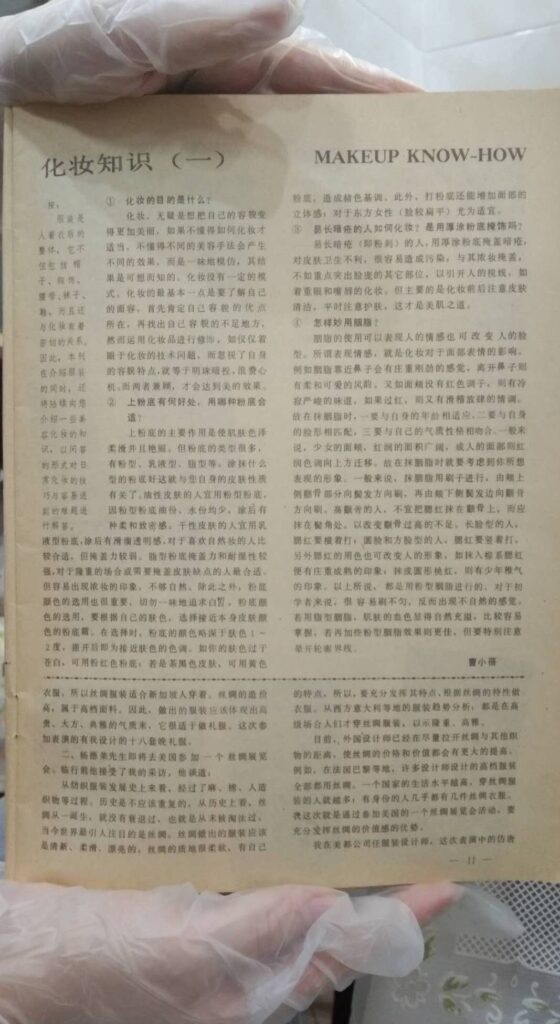
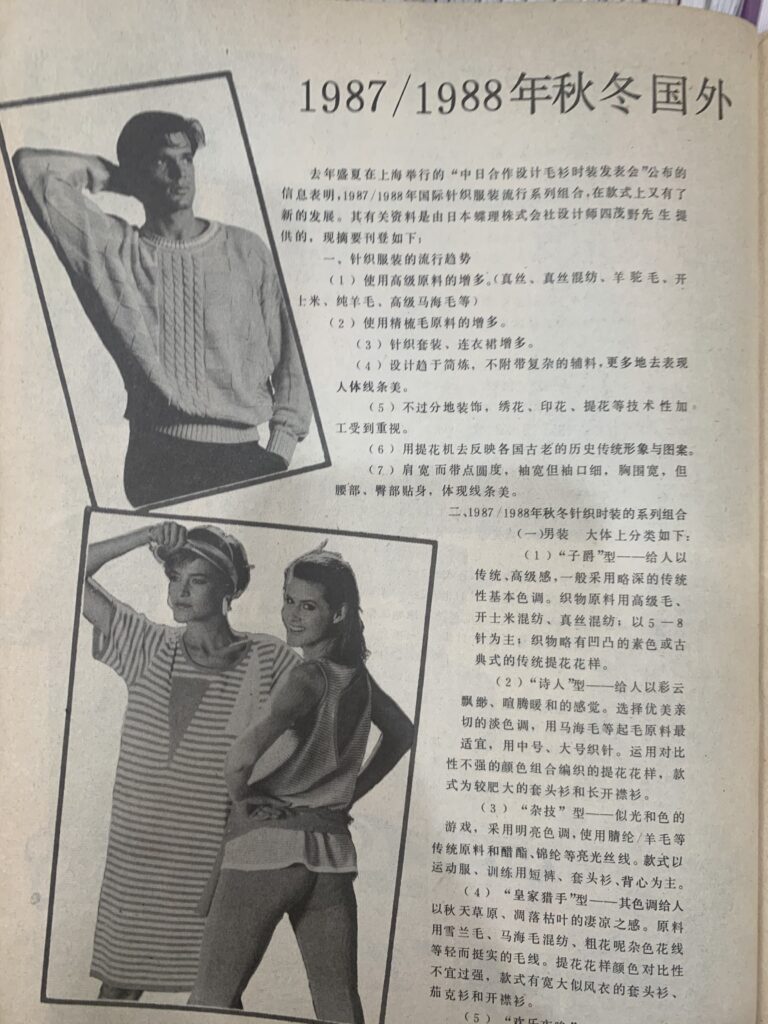
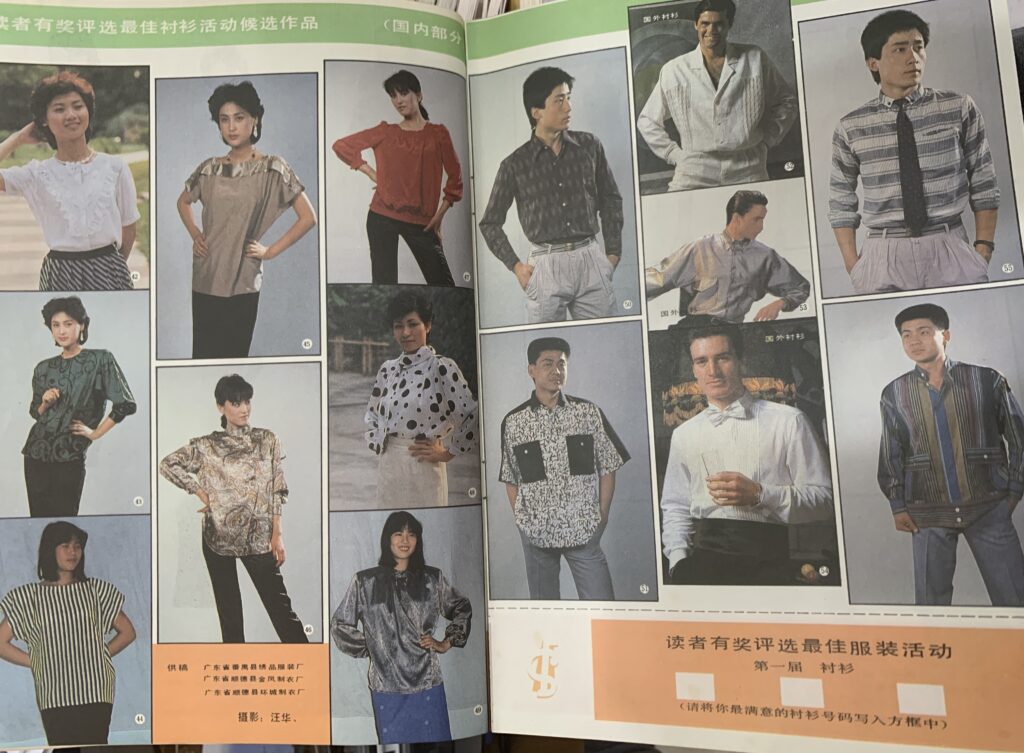
Those magazines witnessed the tendency that urban people’s perceptions of grooming and clothing became less conservative from the mid-80s to the early 90s. The covers of the magazines became bolder, clothes more colourful and catchy, and the content related to pursuing beauty seemed more diverse. Needless to say, they also presented a trend of commercialisation. (I talked about those magazines with Wh.S, and he joked that this would be a good academic paper about material culture haha.)
I was particularly interested in an advertisement for the first national model competition. Candidates needed to be selected from model teams in different provinces, as models were organised and trained in various regions then. At the same time, I was reading political and cultural treatises about China in the late 80s, meanwhile, watching lots of movies (for example, 顽主 The troubleshooters in 1988) and documentaries. Gradually I had the inspiration to write a short story with its background set in the late 1980s.
Eer 俄俄, the main character in the story, came from a rural area in Zhejiang province. After enrolling in a university in Beijing, she did not want to study but was enthusiastic about setting up her own fashion company. As a big fan of fashion magazines, she knew the clothing industry well and saw an enormous market. Her aspiration was also related to her long-standing inferiority complex due to her obesity and countryside status. Her resentment led her to reject joining the “normal” people like her classmates who were waiting for assigned jobs or migrating abroad.
Thus, she planned to use her cousin and a man named Dawei大卫 she had a crush on, to be successful. Her cousin was a retired model from Zhejiang Model Team. Eer encouraged or even pushed her to participate in the first model competition, with the fantasy that her cousin would win so that her company would be extremely famous. Regarding Dawei, she was well aware that she liked his status, money, and, most importantly, a sense of repressed heroism, which distinguished him from most of his classmates. At the time, Dawei faced the choice of migrating abroad with Yahui雅惠, her potential fiancée who grew up with him. However, a student protest at the university made him realise what he wanted to do in his 20s. Of course, Eer wanted to make good use of this opportunity to make him stay.
I finished several short story drafts in 2020 and 2021 but thought I needed more time to figure out Dawei’s attitude towards the protest, as well as the nature of the radical demonstration. Two weeks ago, I started to revise this story and make every character express their ideas on their terms without my interference. I’m also trying to change the previous language style that was a bit too “vintage”. One of my editors said she was stunned by the story’s tone. Well, it was kind of from the breath of the times I understood.
🙂